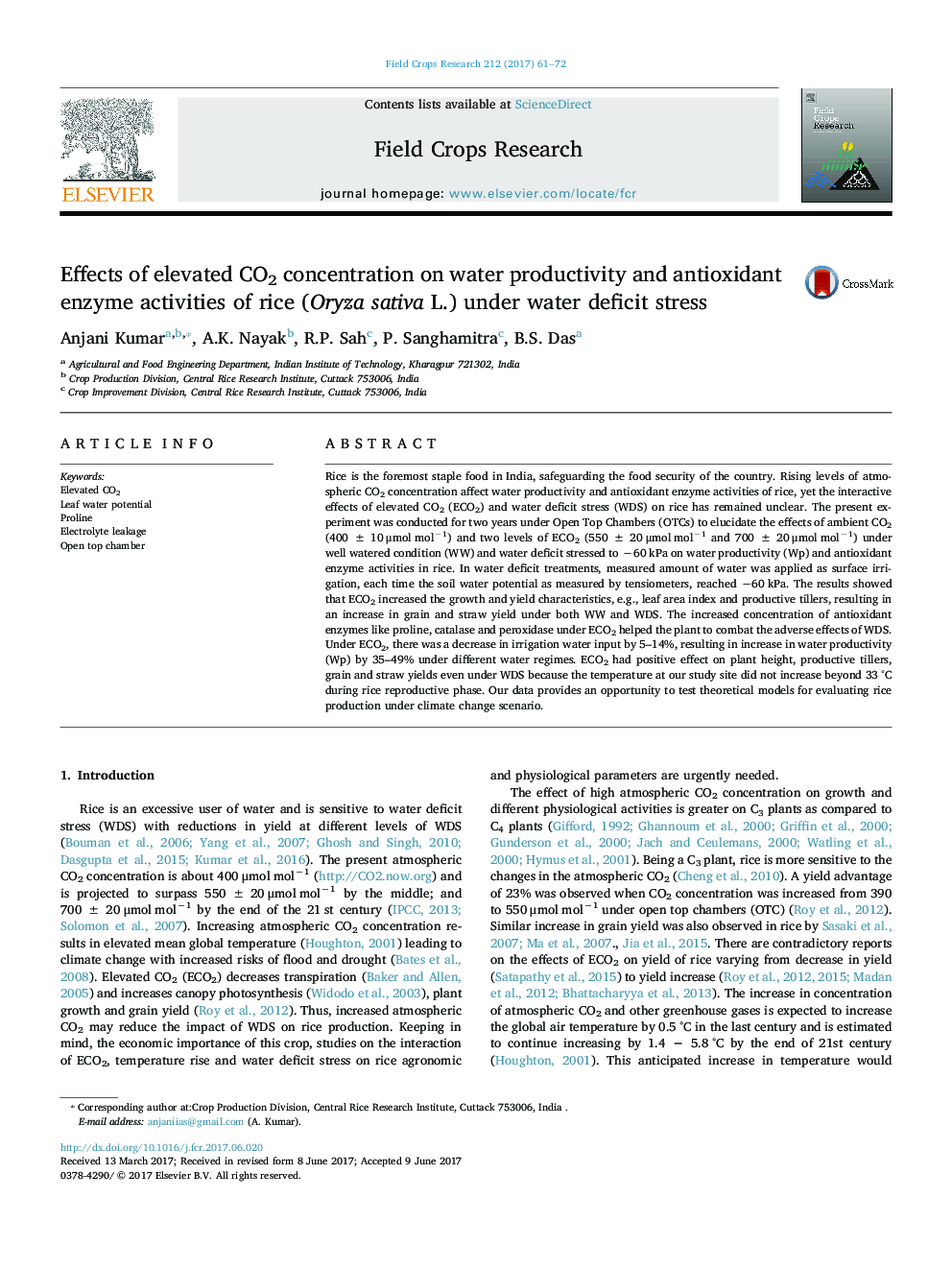| Article ID | Journal | Published Year | Pages | File Type |
|---|---|---|---|---|
| 5761347 | Field Crops Research | 2017 | 12 Pages |
Abstract
Rice is the foremost staple food in India, safeguarding the food security of the country. Rising levels of atmospheric CO2 concentration affect water productivity and antioxidant enzyme activities of rice, yet the interactive effects of elevated CO2 (ECO2) and water deficit stress (WDS) on rice has remained unclear. The present experiment was conducted for two years under Open Top Chambers (OTCs) to elucidate the effects of ambient CO2 (400 ± 10 μmol molâ1) and two levels of ECO2 (550 ± 20 μmol molâ1 and 700 ± 20 μmol molâ1) under well watered condition (WW) and water deficit stressed to â60 kPa on water productivity (Wp) and antioxidant enzyme activities in rice. In water deficit treatments, measured amount of water was applied as surface irrigation, each time the soil water potential as measured by tensiometers, reached â60 kPa. The results showed that ECO2 increased the growth and yield characteristics, e.g., leaf area index and productive tillers, resulting in an increase in grain and straw yield under both WW and WDS. The increased concentration of antioxidant enzymes like proline, catalase and peroxidase under ECO2 helped the plant to combat the adverse effects of WDS. Under ECO2, there was a decrease in irrigation water input by 5-14%, resulting in increase in water productivity (Wp) by 35-49% under different water regimes. ECO2 had positive effect on plant height, productive tillers, grain and straw yields even under WDS because the temperature at our study site did not increase beyond 33 °C during rice reproductive phase. Our data provides an opportunity to test theoretical models for evaluating rice production under climate change scenario.
Related Topics
Life Sciences
Agricultural and Biological Sciences
Agronomy and Crop Science
Authors
Anjani Kumar, A.K. Nayak, R.P. Sah, P. Sanghamitra, B.S. Das,
